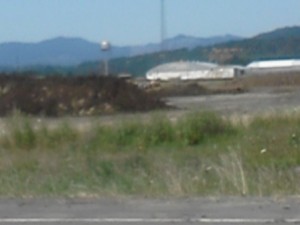Movie Exposes Strategies of Fracking Companies
Fracking companies use a mix of strategies to counter local opposition to fracking operations. Now a movie exposes some of these strategies.
In this article
Promised Land movie exposes fracking strategies
The movie, “Promised Land” starring Matt Damon and Frances McDormand, unveils not only the risks of natural gas ‘fracking’ technology of polluting ground water in rural communities: The movie unveils a strategy the drilling companies may well be employing in order to counteract the facts and confuse people.
Matt Damon plays a gas drilling company salesman, Steve Butler; while Frances McDormand plays the environmentalist who arrives to compete for farm votes in this small town set in Pennsylvania. The idea is that the town will put it to a vote whether it will allow the gas company to drill for natural gas under the town.
Behind the scenes, the two characters are actively employing strategies to win over the townspeople in one direction or another. At least that is what the appearances are.
The problem – without giving away the surprise ending of the movie – is that the gas company is pulling more strings than Butler ever imagined. The implications of this are profound and educational, making the movie more than just theatrical.
In addition to illustrating strategies the natural gas companies may be employing, the movie teaches lessons that relate to the very gamble we are making upon nature and our future survival. Are we willing to risk the very resource our bodies need every day (clean water) in order to get rich or feed our oil economy?
And are there really no better alternatives?
The gas companies appeal to our sense of urgency that we must exploit these underground gas resources – risking our water supplies – in order to prevent our economy from tanking or prevent being beholden to oil-producing countries around the world.
In order to achieve this, these drilling companies employ a technology that shoots millions of gallons of toxic chemicals into the shale in order to facilitate drilling, causing the shale to fracture (hydraulic fracturing). The risk – proven out by the numerous well poisonings including many in Pennsylvania – is that these chemicals – or the methane that lies within the shale – will leak up the well or through the concrete casings to ruin the ground water supplies that people rely upon for survival. In addition, there is concern that this disruption underneath the ground may produce earthquakes and other calamities.
These are not to mention the pollution produced by many drilling sites above the ground.
Hurting drinking water supplies
While numerous wells have not ruined groundwater supplies, there are enough incidences to prove there is risk. Scientists at the PennEnvironment Research and Policy Center determined that gas drilling companies violated environmental laws 3,355 times out of 4,596 drilling sites. Some of violations resulted in fines, many did not. Most produced toxicity, some contaminating water supplies. This is one state alone, out of the many drilling sites throughout the U.S.
The fact is, we currently have the technologies to practically eliminate our oil economy, and in the process, produce more than enough jobs to employ our population.
These new technologies relate to the production of energy through hydrogen, solar, wind, waves and other technologies that utilize passive energy from the environment. Germany, for example, produces 5% of its electricity from solar alone and is on track to produce 20% by 2030 – even though Germany has substantially less sunshine than most of the U.S. The U.S. also has significant wind and is surrounded by coast lines that produce waves that can now be converted into electricity.
We now have solar cars, solar airplanes and solar houses. We also have hydrogen-water engines that can power everything from cars to trucks to tractors. There are now hydrogen fuel cell generators that can generate enough household electricity to allow our house to be disconnected from the grid. There are also electric vehicles on the market today that can charge from our household electricity and drive over 100 miles on one charge. If the charge came from a solar-powered house or facility, that travel would have practically a zero carbon footprint.
Surely we have the technologies to belay a strategy that risks our very survival – the precious waters that we require daily for survival. The precious air we breathe every second. The very land from which our bodies exist.
A willingness to survive
Apparently, we don’t have the will to protect our ability to continue to survive on this planet. The determination to preserve our environment for coming generations is required. We would rather risk the future of the planet instead. We would rather go with the status quo, and listen to those who have a vested interest in maintaining the status quo.
Just consider what a person might do if they were stuck in the wilderness. They would improvise. They would become determined to survive and use every means available to guarantee their future survival.
This is where we are now. We are at the precipice of the survival of the human race. We are at the crossroads. We have a choice to make.
Laying out the nature of this crossroads is what this movie clearly communicates. It is a thought-provoking question not only to be grappled by Americans in rural areas being offered the promise of riches with the risk of toxicity to their children and communities: It is to be grappled by human society in general regarding the direction we are headed: We are raping the very resources we need for the future survival of our race.
Coming to grips with these questions brings us to the issue of sustainability. Rather than debating the various details of our strategies, we need to consider whether our activities are sustainable. Clearly the oil- and gas-based economy is not sustainable from either a resource perspective or a perspective related to greenhouse gases.
Clearly we need to embark on a sustainable strategy. When will we become determined to do this? After half the human race is eliminated?


















